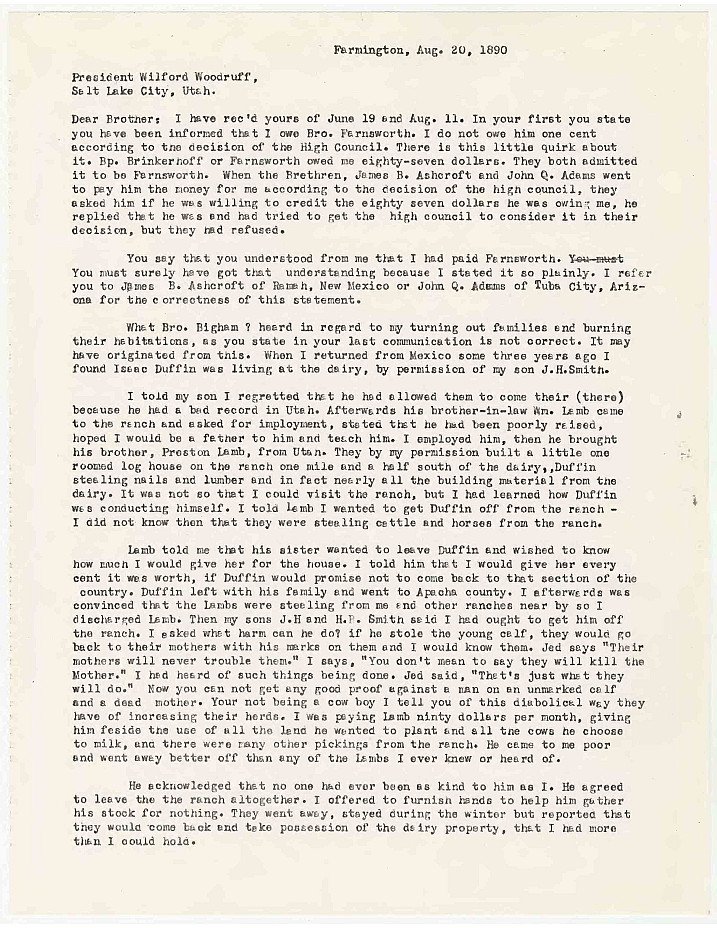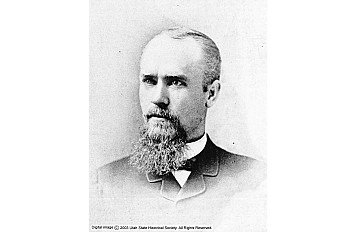
Day in the Life
Journal Entry
20 We road to Sandford 8 mils to Bishop Bertholsons
Brother Cannon was quite unwell we met at 11 oclok
and George Godard prayed J F Smith spoke 35 M[inutes],
G Q Cannon 30 W Woodruff 25 m[inutes] I signed 7 recommends
I visited an Altar in a prayer room. At the close of
the meeting we took carriages at Alamosa with
Legrand Laton, Wm W Durkee, & N A James we
rode to Zapato 3 1/2 hours we reached a part of the ranch
& spent the night at Mr Layton Distance 23 Miles
Mr Jann had a kennel of about a Doz Blooded Dogs
I had a free talk with Mr Layton on Mormonism
I told him some of my Experience Brother Silas S Smith
& F A Hammond had purchased this part of their
Ranch
People
Browse people Wilford Woodruff mentioned on this day in his journal. Click on the person's name to view a short bio and other pages they are mentioned on or click on "View in Family Search" to view their FamilySearch profile.
Places
Browse places mentioned in Wilford Woodruff's journal entry on this day. Click on the place names to view other pages where they are mentioned.
Related Documents
Browse other documents with this same date. These could include pages from Wilford Woodruff's autobiographies, daybooks, letters, histories, and personal papers. Click on the document titles to view the full document.


Events
View selected events in the two months surrounding this date in Wilford Woodruff's life. Click on the dates to jump to that day in Wilford Woodruff's journal.





